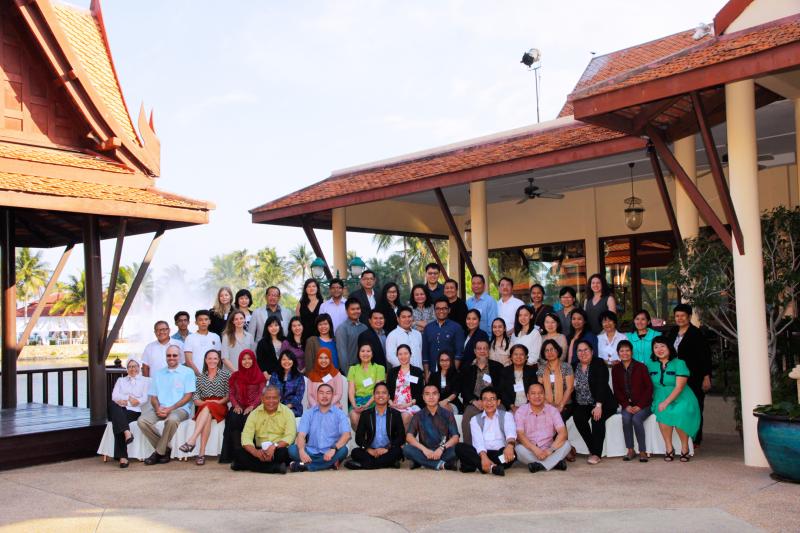Nearly 50 individuals coming from eight countries participated in the recent Cornell Alliance for Science Asia Leadership Course in Hua Hin, Thailand. Committed to increasing access to innovations in their respective countries, highly diverse participants in the course experienced intensive training on developing strategic frameworks and tools to help them develop forward-facing communication plans.
In countries such as Bangladesh, China, Indonesia, Malaysia, the Philippines, Thailand, the United States of America, and Vietnam, biotechnology is considered a means to address global challenges such as food security, agricultural sustainability, and climate change.
YouLead founder, Yan Mi, of Beijing, China, sees biotechnology as a viable technology to respond to resiliency challenges. YouLead is a non-governmental organization focusing on youth leadership and sustainable development.
China is the most populous country in the world, but it only has around 10% arable land. We have a huge responsibility to feed more than 25% of the world population. It is important for people to pay attention to agriculture. It is crucial for the youth to be informed about biotechnology as an option to produce more food and make agriculture sustainable, Yan Mi emphasized.

National land surveys in China have found that more than 40% of the arable land is suffering from degradation. This reduces the capacity of the country to provide a stable food supply for its huge population. The same countries also experience challenges in making this technology option available to smallholder farmers because biotechnology has become a very contentious topic.
In most countries, governments are supportive of innovative agricultural technologies to help solve productivity and resiliency issues, but oftentimes lack the political will to advance their development. This is because the government is generally expected to be technology neutral and, in some cases, is hesitant to promote something that has strong opposition. GE critics have a louder voice than supporters of GE do; in fact, there is insufficient clear voice of support for GE.
In Thailand, GE crops are allowed to be imported into the country and used for animal feeds, but these are not permitted to be grown by farmers. The Thai government supports research but remains cautious about GE crop production. With very strong, loud anti-GE activism, the public is easily swayed by scare tactics intended to influence public perception. On the other hand, the voice of scientists and farmers have been largely discounted. This presents serious hindrance in passing crucial laws and policies for proper regulatory consideration of GE crops.
A new administrative order in the Philippines is being deliberated among national government agencies, in compliance with the Supreme Court of the Philippines directive to formulate a new regulatory policy that incorporates provisions on environmental protection and more public consultations. Local scientists have called for a regulatory system guided by scientific knowledge. Biosafety frameworks, according to them, should not put GE organisms in the same category as toxic chemical wastes and nuclear bombs.
It is in this context where effective communication of science and technology is crucial and providing a platform for people who are supportive of science, or those who simply believe in equal access to accurate information and beneficial innovations is deemed essential. More voices need to be heard.
For short course participant Anongpat Suttangkakul, a lecturer on Genetics at Kasetsart University in Thailand, science communication needs to reach the general public. She researches GE as a tool to improve crops and microalgae for better use of farmers and the industry. Suttangkakul is interested in communicating her research work and creating public awareness on biotechnology as an option for Thai farmers. She says:
At the university, we develop tools, but if the farmers and the industry can t use them, then there s no point in doing our work. That is why I want to raise awareness on biotechnology. As a lecturer, I want to improve my skills in science communication. I want to better myself.
The Cornell Alliance for Science is global initiative for science-based communication. By bringing together scattered voices and efforts around the world, the Alliance calls for an informed conversation and decision-making about biotechnology. Training courses such as the Asia Leadership Course in January help to amplify the voices of farmers, consumers, and scientists worldwide.
Ann Lopez is a 2015 Global Leadership Fellow and Asia Leadership Training Course facilitator
